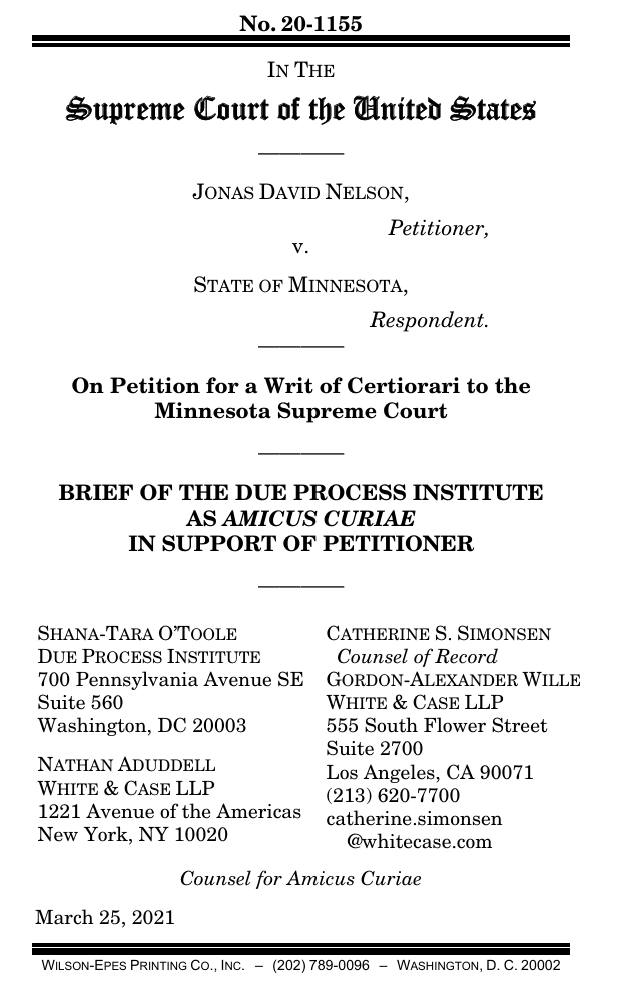
Summary of Argument
Seven days cost Petitioner Jonas Nelson the opportunity for a chance at parole. Jonas committed the offense for which he was convicted seven days after his 18th birthday. Had Jonas been just seven days younger, he would not have been eligible for a sentence of mandatory life without parole under this Court’s decision in Miller v. Alabama. But because those seven days had passed, the Minnesota Supreme Court found that he was not entitled to receive the protections of Miller, including the opportunity to present mitigating evidence bearing upon his family’s troubled circumstances, his psychological condition, and the history of abuse at the hands of his father.
The Court’s mandate in Miller was born out of one fundamental principle: youth matters. This Court repeatedly has announced that “youth matters” for purposes of the Eighth Amendment’s prohibition on cruel and unusual punishments. That judgment is not only the product of parental wisdom; it is a conclusion built on modern science. Listening to the science, this Court has declared that young people are less morally culpable and more likely to be reformed.
In recent years, a division has grown in the lower courts about the application of Miller to young adults who have passed the age of 18. Based on current science and the principle that “youth matters,” state and federal courts have extended Miller to young adults, including 18-, 19-, and 20-year-olds. But other courts, like the Minnesota Supreme Court below, have interpreted this Court’s precedents as establishing a bright-line rule, one which strips away the rights guaranteed by Miller the moment the clock strikes midnight on the juvenile’s 18th birthday. Now is the time for the Court to resolve the divide and answer the question whether Miller extends to barely chronological adults.
The Miller protections should extend, at a minimum, to young adults ages 18, 19, and 20. First, it is not only society that recognizes that youth continues past the age of 18; the latest scientific findings confirm that the brain continues to mature in key areas of decision-making well into our twenties. Second, extending Miller to young adults ages 18 to 20 will curb the unfair allocation of rights between young-adult defendants who possess mitigating qualities of youth and juvenile defendants who are afforded the chance to present evidence as to those qualities. Lastly, extending Miller in this way will not place any significant burden on the courts.
The Court should grant certiorari and extend Miller, at the very least, to young adults who committed an offense at ages 18, 19, or 20 years old.